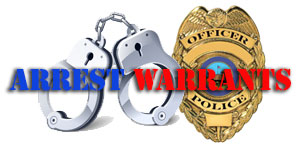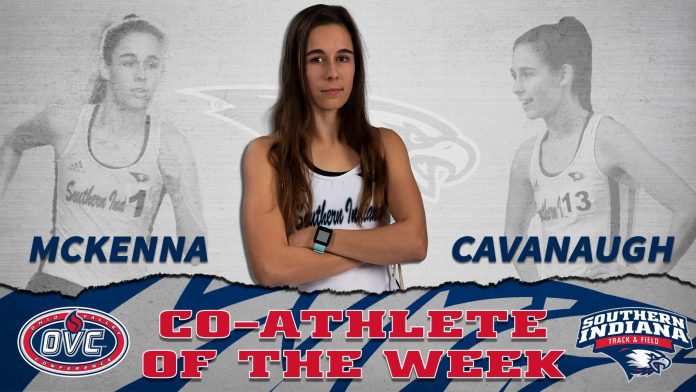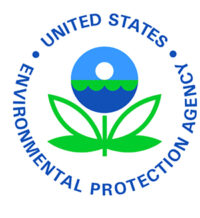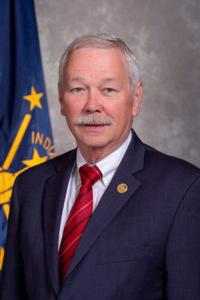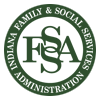Cavanaugh’s victory leads to OVC Co-Female Track Athlete of the Week honor
EVANSVILLE, Ind. – University of Southern Indiana Women’s Track & Field junior McKenna Cavanaugh (New Albany, Indiana) was given a share of the Ohio Valley Conference Female Track Athlete of the Week honor Tuesday afternoon. This is the first weekly award for the Screaming Eagles in the NCAA Division I era.
Cavanaugh was named champion in the mile at the PNC Bellarmine Classic after crossing the finish line with a personal best time of four minutes, 49.72 seconds. This marks the second-fastest indoor mile time in USI Women’s Track & Field history. Cavanaugh now has a pair of victories in the mile this season, previously at the Bellarmine Open on January 20.
The Eagles finished the meet with 19 points, earning an 11th-place finish after competing against 16 teams.
Joining Cavanaugh in the weekly honor is Southeast Missouri State University’s Breana Miles who broke the school record in the women’s 200-meter for a first-place finish and placed third in the 60-meter dash at the PNC Bellarmine Classic.
Cavanaugh and the Eagles return to the track this Friday and Saturday when USI travels to Boston, Massachusetts for the David Hemery Valentine Invitational along with the GVSU Big Meet in Allendale, Michigan.
Tackle Foodborne Illness When Ordering Takeout or Delivered Foods
February 9, 2023
The Super Bowl is the biggest and most anticipated sporting event of the year. Friends and families “huddle†and consume foods and snacks for the duration of the game while cheering for their favorite team. This iconic annual event is often celebrated by ordering takeout and delivered foods, which if left out too long, can cause foodborne illness.
Leaving food out at room temperature is a big food safety penalty. Bacteria that can cause foodborne illness will start to grow to dangerous levels in the range of temperatures between 40 F and 140 F when left out for over two hours or one hour if above 90 F. This range of temperatures is called the Danger Zone.
To avoid foodborne illness during the big game, follow this game plan:
- Keep cold foods cold and hot foods hot. Cold foods should be kept under 40 F on the buffet table by nesting serving dishes of food in bowls of ice. Hot foods should be kept above 140 F. A preheated oven, chafing dishes, preheated warming trays or slow cookers can be used to keep food hot.
- Don’t serve all food at once. Use small platters and replace them often with fresh refrigerated platters of food, rather than adding fresh food to a serving dish already on the table. Hot foods should be reheated to 165 F as measured with a food thermometer. When reheating in the microwave, cover the food for even heating. Check the temperature of the food in several places with a food thermometer, as some microwaved foods can have cold spots.
For more information, call the USDA Meat and Poultry Hotline at 1-888-MPHotline (1-888-674-6854) or email MPHotline@usda.gov to reach a food safety expert or chat live at ask.usda.gov from 10 a.m. to 6 p.m. Eastern Time, Monday through Friday.
EPA Administrator Regan Marks Delivery of Kansas’ First Electric School Buses, Announces Electric Utility Pledge to Support Successful Deployment of Electric School Buses Nationwide
Following President’s State of the Union Address, EPA Highlights Progress to Invest in America Through President Biden’s Bipartisan Infrastructure Law
WASHINGTON (Feb. 8, 2023) – Today, U.S. Environmental Protection Agency (EPA) Administrator Michael S. Regan visited Wabaunsee USD 329 School District in Alma, Kansas to celebrate the delivery of the state’s first all-electric school buses and mark the historic investment in America under President Biden’s Bipartisan Infrastructure Law. Administrator Regan, joined by students, school officials, and community leaders, highlighted how initiatives like EPA’s Clean School Bus (CSB) Program are delivering environmental and economic benefits for communities like Wabaunsee. During the visit, Administrator Regan also announced a new pledge from electric utility partners to support efforts to electrify the nation’s school bus fleet.
“We are moving faster than ever to accelerate the transition to electric and low-emission school buses, and new electric school buses in rural school districts like Wabaunsee USD 329 are a shining of example of what we can accomplish when we invest in America,†said EPA Administrator Michael S. Regan. “The Biden-Harris Administration is committed to building on this work and making investments accessible to more rural communities by partnering with electric utilities who have pledged to support school bus electrification.â€
The Bipartisan Infrastructure Law provided EPA with $5 billion between FY22 and FY26 to replace diesel school buses with low- and zero-emission alternatives. In May 2022, EPA launched the first funding competition, initially making $500 million in rebates available to school districts nationwide. Given overwhelming demand, EPA nearly doubled the amount of funding for the 2022 rebates and awarded $965 million in rebates to 400 school districts for over 2,500 new clean school buses.
Wabaunsee USD 329 – a rural school district – is among the 400 school districts benefiting from these rebates. Their partner, Lion Electric, received $790,000 in rebates for two Type C electric school buses that will serve Wabaunsee USD 329. The new electric buses were delivered to the school district in December 2022 and are already transporting kids to and from school every day. The school district partnered with the City of Alma’s Municipal Utility to quickly deploy electric charging infrastructure to support the transition to electric charging.
“We are grateful for being chosen to receive this support for our students through the Clean School Bus program. This grant allows us to transport students cleaner and more safely to and from school. By the same token, we get the added benefit of cost-savings on transportation, redirecting funds normally spent on operations back into instruction,†said USD 329 – Wabaunsee Superintendent of Schools, Dr. Troy Pitsch.
Partnering with Utilities to Advance the Transition to Clean School Buses
During the event in Wabaunsee, Administrator Regan also announced a new pledge to promote seamless collaboration between school districts and their electric utility providers, ensuring the successful deployment of electric school buses nationwide. Edison Electric Institute (EEI), the association that represents all U.S. investor-owned electric companies, and the Beneficial Electrification League (BEL), a non-profit organization that works closely with rural electric cooperatives and public power utility providers on electrification initiatives, have joined with EPA to pledge their support for school bus electrification. EEI members and BEL partners have pledged to proactively work with school districts to:
- Facilitate communication between electric providers and school districts
- Provide technical support and assistance
- Work together to increase funding and deployment for electric school buses
“EEI is proud to be working closely with the U.S. Environmental Protection Agency and the Beneficial Electrification League on the Clean School Bus Program,” said EEI President Tom Kuhn. “This program is a crucial step for reducing carbon emissions from the transportation sector. The new electric school buses will lower maintenance costs and help to improve local air quality while providing clean and reliable transportation for students. America’s electric companies are committed to helping their local school districts plan for their new electric school bus fleets.”
“Rural and small-town electric providers have a long tradition of assisting their communities with using electricity to improve quality of life for the local people they serve. The Beneficial Electrification League is honored to help its stakeholder utilities ensure that schools and the children they educate have a positive experience with electric school buses,†said Keith Dennis, President of the Beneficial Electrification League.
School districts that received rebate awards can now proceed with purchasing new buses and eligible infrastructure. If they have not done so already, selectees will need to submit Payment Request Forms with purchase orders demonstrating they have ordered new buses and eligible infrastructure. EPA is also partnering with the U.S. Department of Energy and Department of Transportation to provide school districts with robust technical assistance to ensure effective implementation.
Annual Report to Congress
The progress under this program is highlighted in the second Clean School Bus Report to Congress, which was also announced today during the visit. The report outlines activities and progress made in fulfilling responsibilities under EPA’s Clean School Bus Program to replace existing school buses with clean and zero-emission school buses. The Second Report to Congress summarizes the program’s activities and progress from January 2022 through December 2022 and includes detailed information on the 2022 Rebate funding initiative.
Highlights of the program’s first full year include:
- Extensive outreach and a widespread enthusiasm from schools across the country in the rebate program, especially among low-income, rural and Tribal stakeholders.
- Over 99% of the rebate selectees met the priority definition under the 2022 criteria, resulting in access to more funds for buses and EV infrastructure for schools in areas that need them most.
- A new online system to facilitate a straightforward and accessible rebate application process that proved to be highly effective.
- An interactive dashboard on epa.gov to provide up-to-date information about the awarded 2022 CSB Rebates.
Indiana 211 Day Raises Awareness Of Valuable Resource For Hoosiers
INDIANAPOLIS – Governor Eric J. Holcomb has proclaimed Saturday, Feb. 11, 2023, “Indiana 211 Day,†as Indiana joins states and cities across the country raising awareness about 211: an important, free resource, available to all Hoosiers. In 2022, Indiana 211 helped connect more than 150,000 callers throughout Indiana with housing, utility assistance, health care, food and many other important resources.
“In 2022, assistance locating housing was the number one concern of callers to Indiana 211, along with utility assistance and help feeding their families,†said Tara Morse, executive director of Indiana 211. “But what many Hoosiers don’t realize is that they can call for everyday information like where to take their child for developmental screening or how to locate job training or find free tax filing support.â€
Experienced, responsive and compassionate community navigators at Indiana 211 can quickly help connect Hoosiers to resources and services they need. During winter months and the early part of the year, the 211 team also enhances its database to include specific resources such as energy assistance programs, warming centers on subfreezing days or tax assistance during tax season.
February 2023 marks the 20th anniversary of the first call accepted by Indiana 211. Indiana 211 connects Hoosiers with thousands of health and human services agencies and resources in their local communities quickly, easily and confidentially. Anyone can call 211 and connect to a navigator who can assist them. There are no eligibility requirements or income standards, and Hoosiers can call on behalf of themselves or for other Hoosiers in need. Many Hoosiers called 211 during the pandemic to schedule or reschedule a vaccine or find a testing site.Â
Indiana 211 is a free and confidential statewide service that helps Hoosiers find local resources they need, including housing, utility assistance, health care and food. In 2020, Indiana 211 became a part of the Indiana Family and Social Services Administration, helping to simplify the process of connecting people to the many services in our state and placing the power of Indiana state government behind this convenient resource. Information and resources are available at IN211.org, including an in-depth data dashboard that shows call volume, caller demographics, county breakdowns, caller needs and other information.
USI To Honor Disability Awareness Month With Gobal Motivational Speaker Lizzie Velasquez
University of Southern Indiana Disability Resources, ADA Coordinator and the Institutional Equity Office are hosting a week of events, Monday, March 13 through Friday, March 17, in honor of Disability Awareness Month. The week will feature a keynote presentation by Lizzie Velasquez, global motivational speaker, YouTube personality and anti-bullying activist/author, at 6 p.m. Thursday, March 16 in Carter Hall. The keynote presentation, “How Do You Define Yourself?,†will be followed by a Q&A session and meet and greet with Velasquez. The event is open to the public at no charge.
Velasquez’s story has been featured on TODAY, The View, Huffington Post, Associated Press, MSN and Yahoo! among other national and international media outlets. She is an executive producer of A BRAVE HEART: The Lizzie Velasquez Story, a documentary chronicling her journey from cyber-bullying victim to global anti-bullying activist. Her fourth book, DARE TO BE KIND, was released in June 2017.

“Many factors and stereotypes can influence our attitudes,†says Michelle Kirk, Manager of Disability Resources. “Interacting with those who are different from you can be uncomfortable, however, if you are open to learning, you will open the door to acceptance and inclusion.â€
Throughout the week, a series of additional events, including a disability awareness scavenger hunt and various tabling events around campus, will be held on campus for the internal University community to honor Disability Awareness Month.
For questions or to request event-related accommodations, contact Kirk at mdkirk@usi.edu or 812-464-1998.



